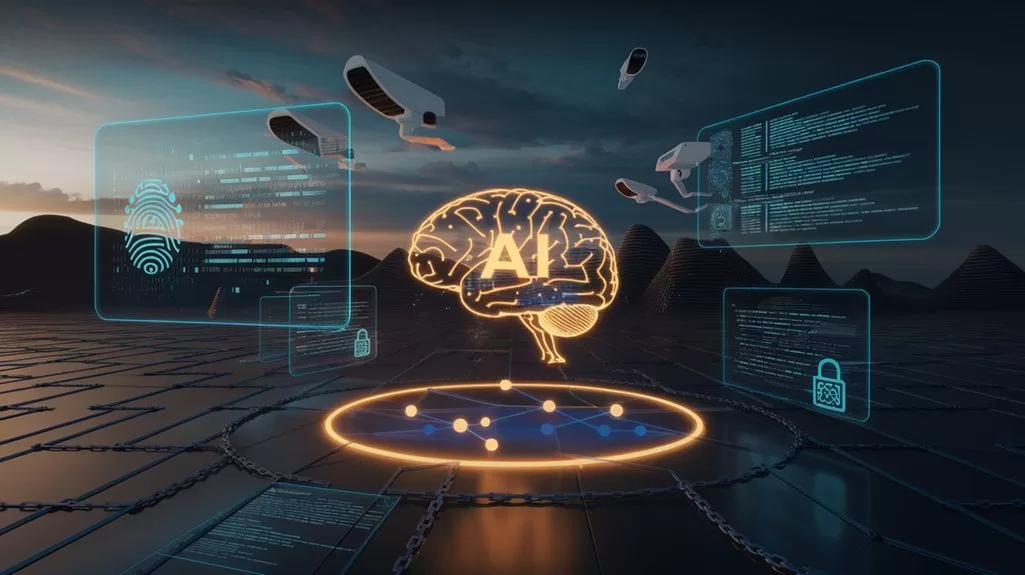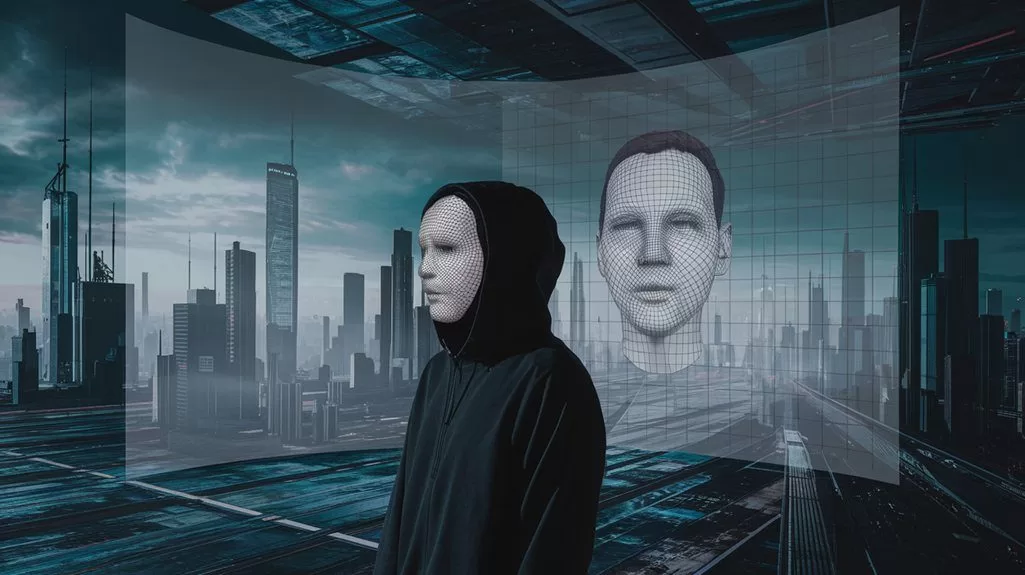Sony Music wages war on AI deepfakes, defending artists' creativity and financial stability against synthetic sounds. It's not just about artistry—it's about cold hard cash. Over 75,000 fake songs have been expelled from streaming platforms. The 'No FAKES Act' aims to secure artists' voice rights, while ethical AI development is encouraged. Sony's aim? Stop AI's pesky encroachment on genuine talent. If you think the battle ends here, think again.
Key Takeaways
- Sony Music removed over 75,000 fake songs from streaming platforms to protect artists' talent and rights.
- Nearly 10,000 takedown notices were issued by Sony Music to combat AI-generated deepfake content.
- 'Make It FAIr' campaign by Sony Music advocates for AI developers to seek permission before using artists' likeness.
- Sony Music supports the 'No FAKES Act' proposal to secure legal rights over artists' voices and likeness.
- Sony Music engages with AI startups to ensure ethical AI development that respects artists' rights and supports creativity.

Although AI's capabilities are often lauded, the rise of deepfakes in the music industry is causing more of a headache than a harmonious tune. With AI deepfakes mimicking artists' voices, human creativity is under siege. AI-generated music threatens to replace genuine artistry with synthetic sounds, creating deepfake dangers that are anything but music to one's ears. These deceptive creations are not just a minor nuisance; they are a major problem. Platforms like TikTok become breeding grounds for these fakes, misleading fans and causing financial harm to legitimate artists. Who knew that a catchy tune could be so treacherous?
Copyright challenges emerge as unauthorized AI content floods the digital airwaves, potentially violating laws designed to protect artists. Over 75,000 fake songs were removed by Sony Music from streaming platforms, a proof of the scale of the issue. Sony Music has issued nearly 10,000 takedown notices to combat this menace, but the fight is far from over. They urge policymakers to enhance copyright laws. After all, respecting copyrights shouldn't just be a suggestion—it should be the law. The company supports campaigns like 'Make It FAIr' to guarantee AI developers can't use their catalog without permission. Good luck to those AI developers trying to sneak around that.
75,000 fake hits axed, Sony fights for artists' rights—copyright isn't optional.
AI deepfakes don't just pose a threat to artists' wallets; they undermine the essence of human artistry. With AI-generated songs potentially replacing real ones, artists face reduced royalties and a devaluation of their craft. Major labels like Universal and Sony advocate for stricter regulations. Collaboration with AI developers is necessary, but let's not pretend it's easy. AI-driven tools, while powerful for creative assistance, walk a fine line. Misuse is always a lurking threat.
Legal loopholes provide platforms with excuses to delay removing unauthorized content, leading to calls for legislative reforms. The 'No FAKES Act' is one such proposal, aiming to give individuals rights over their voice and likeness. When politicians get involved, you know it's serious. Industry-wide efforts push for clear legal frameworks to tame the AI beast. Rob Stringer, the chairman of Sony Music, has emphasized the importance of rewarding creators in the face of AI advancements, highlighting that the existing UK copyright model is crucial for innovation and protection.
Sony Music is actively engaging with AI startups, focusing on ethical AI applications. Talk about a bold move. Around 200 conversations and equity investments aim to develop tools that protect content and foster innovation within copyright boundaries. Sony Music expresses concerns over AI infringing on human artistry and copyright ownership, emphasizing the need for responsible development. The surveillance paradox exemplifies the delicate balance needed in AI development, where fostering innovation must not come at the cost of individual rights.
These partnerships work to enhance human creativity, not replace it. Now, wouldn't that be invigorating? Ethical AI development supports legitimate innovation, turning deepfake dangers into opportunities for growth. In the end, it's all about striking the right chord.
References
- http://www.mxdwn.co.uk/news/sony-music-takes-on-ai-deepfake-challenge-amidst-industry-concerns/
- https://www.one-submit.com/post/the-war-on-ai-continues-sony-issues-warning-to-700-tech-companies
- https://www.musicbusinessworldwide.com/sony-music-has-issued-nearly-10000-deepfake-takedowns-and-other-things-we-learned-from-dennis-kookers-speech-about-ai/
- https://www.latimes.com/entertainment-arts/business/story/2024-05-16/sony-warns-tech-companies-dont-use-our-music-to-train-your-ai
- https://www.cnet.com/tech/services-and-software/sony-music-moves-to-stop-unauthorized-ai-training-that-uses-its-artists-work/









